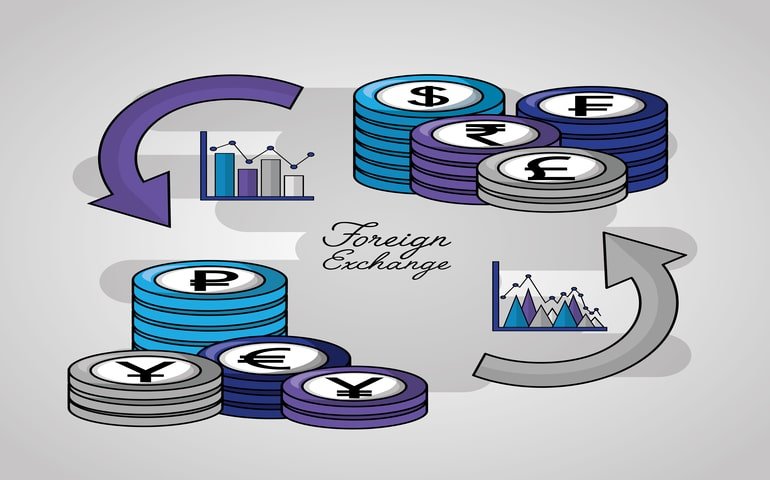Course Features
Price
Study Method
Online | Self-paced
Course Format
Reading Material - PDF, article
Duration
5 hours, 25 minutes
Qualification
No formal qualification
Certificate
At completion
Additional info
Coming soon
- Share
Overview
The CFA Level 7 Advanced Diploma is designed to equip learners with advanced financial knowledge, analytical techniques, and strategic decision-making skills essential for high-level roles in finance. This diploma closely aligns with CFA (Chartered Financial Analyst) curriculum standards, making it ideal for those looking to strengthen their financial expertise or progress toward CFA charterholder status.
The course begins with Advanced Financial Reporting and Analysis, providing a deep dive into financial statements, corporate financial reporting, and accounting standards. Students will gain the ability to interpret and analyze financial statements for investment decision-making and corporate strategy.
Next, learners explore Advanced Investment Analysis and Portfolio Management, where they will master equity and fixed income valuation, alternative investments, and portfolio construction strategies. These lessons are designed to provide a strong foundation in risk-adjusted investing, asset allocation, and financial markets analysis.
The Corporate Finance and Financial Strategy module covers corporate governance, risk management, capital budgeting, mergers and acquisitions, and dividend policy strategies. These lessons help learners develop a holistic understanding of financial decision-making in corporate environments.
To enhance analytical and quantitative skills, the course includes Quantitative Methods for Finance, focusing on time series forecasting, financial modeling, and risk analytics. Learners will develop hands-on expertise in applying statistical tools and data-driven decision-making techniques for investment and risk management.
Understanding ethical and professional standards is a critical component of finance. This module emphasizes financial ethics, regulatory frameworks, and professional integrity in financial analysis, ensuring that learners adhere to global best practices.
The International Finance and Economic Environment section explores global financial markets, macroeconomic factors, exchange rates, and international trade dynamics. Students will gain insights into how financial institutions operate across borders and the impact of global economic policies on financial decision-making.
With the rise of digital transformation, the course includes Financial Technologies and Innovations, covering blockchain, artificial intelligence (AI) in finance, risk management in FinTech, and regulatory challenges. This module prepares learners to adapt to the changing financial landscape and leverage cutting-edge financial technologies.
The diploma concludes with Practical Applications and Case Studies, where learners analyze real-world investment management scenarios and integrate their knowledge in a capstone project, applying financial principles to solve complex business challenges.
By the end of this diploma, students will have gained advanced financial expertise, risk management skills, and investment analysis capabilities, making them highly competitive in global finance markets.
Graduates of this diploma can pursue careers as investment bankers, financial analysts, portfolio managers, corporate finance executives, asset managers, risk analysts, and FinTech professionals. The course also provides an excellent foundation for those pursuing a CFA charter, financial consultancy, or leadership roles in global financial institutions. With expertise in advanced financial modeling, risk assessment, and ethical financial decision-making, learners will be well-prepared for highly competitive and lucrative roles in the financial sector.
Who is this course for?
The CFA Level 7 Advanced Diploma is designed to equip learners with advanced financial knowledge, analytical techniques, and strategic decision-making skills essential for high-level roles in finance. This diploma closely aligns with CFA (Chartered Financial Analyst) curriculum standards, making it ideal for those looking to strengthen their financial expertise or progress toward CFA charterholder status.
The course begins with Advanced Financial Reporting and Analysis, providing a deep dive into financial statements, corporate financial reporting, and accounting standards. Students will gain the ability to interpret and analyze financial statements for investment decision-making and corporate strategy.
Next, learners explore Advanced Investment Analysis and Portfolio Management, where they will master equity and fixed income valuation, alternative investments, and portfolio construction strategies. These lessons are designed to provide a strong foundation in risk-adjusted investing, asset allocation, and financial markets analysis.
The Corporate Finance and Financial Strategy module covers corporate governance, risk management, capital budgeting, mergers and acquisitions, and dividend policy strategies. These lessons help learners develop a holistic understanding of financial decision-making in corporate environments.
To enhance analytical and quantitative skills, the course includes Quantitative Methods for Finance, focusing on time series forecasting, financial modeling, and risk analytics. Learners will develop hands-on expertise in applying statistical tools and data-driven decision-making techniques for investment and risk management.
Understanding ethical and professional standards is a critical component of finance. This module emphasizes financial ethics, regulatory frameworks, and professional integrity in financial analysis, ensuring that learners adhere to global best practices.
The International Finance and Economic Environment section explores global financial markets, macroeconomic factors, exchange rates, and international trade dynamics. Students will gain insights into how financial institutions operate across borders and the impact of global economic policies on financial decision-making.
With the rise of digital transformation, the course includes Financial Technologies and Innovations, covering blockchain, artificial intelligence (AI) in finance, risk management in FinTech, and regulatory challenges. This module prepares learners to adapt to the changing financial landscape and leverage cutting-edge financial technologies.
The diploma concludes with Practical Applications and Case Studies, where learners analyze real-world investment management scenarios and integrate their knowledge in a capstone project, applying financial principles to solve complex business challenges.
By the end of this diploma, students will have gained advanced financial expertise, risk management skills, and investment analysis capabilities, making them highly competitive in global finance markets.
Graduates of this diploma can pursue careers as investment bankers, financial analysts, portfolio managers, corporate finance executives, asset managers, risk analysts, and FinTech professionals. The course also provides an excellent foundation for those pursuing a CFA charter, financial consultancy, or leadership roles in global financial institutions. With expertise in advanced financial modeling, risk assessment, and ethical financial decision-making, learners will be well-prepared for highly competitive and lucrative roles in the financial sector.
Requirements
The CFA Level 7 Advanced Diploma is designed to equip learners with advanced financial knowledge, analytical techniques, and strategic decision-making skills essential for high-level roles in finance. This diploma closely aligns with CFA (Chartered Financial Analyst) curriculum standards, making it ideal for those looking to strengthen their financial expertise or progress toward CFA charterholder status.
The course begins with Advanced Financial Reporting and Analysis, providing a deep dive into financial statements, corporate financial reporting, and accounting standards. Students will gain the ability to interpret and analyze financial statements for investment decision-making and corporate strategy.
Next, learners explore Advanced Investment Analysis and Portfolio Management, where they will master equity and fixed income valuation, alternative investments, and portfolio construction strategies. These lessons are designed to provide a strong foundation in risk-adjusted investing, asset allocation, and financial markets analysis.
The Corporate Finance and Financial Strategy module covers corporate governance, risk management, capital budgeting, mergers and acquisitions, and dividend policy strategies. These lessons help learners develop a holistic understanding of financial decision-making in corporate environments.
To enhance analytical and quantitative skills, the course includes Quantitative Methods for Finance, focusing on time series forecasting, financial modeling, and risk analytics. Learners will develop hands-on expertise in applying statistical tools and data-driven decision-making techniques for investment and risk management.
Understanding ethical and professional standards is a critical component of finance. This module emphasizes financial ethics, regulatory frameworks, and professional integrity in financial analysis, ensuring that learners adhere to global best practices.
The International Finance and Economic Environment section explores global financial markets, macroeconomic factors, exchange rates, and international trade dynamics. Students will gain insights into how financial institutions operate across borders and the impact of global economic policies on financial decision-making.
With the rise of digital transformation, the course includes Financial Technologies and Innovations, covering blockchain, artificial intelligence (AI) in finance, risk management in FinTech, and regulatory challenges. This module prepares learners to adapt to the changing financial landscape and leverage cutting-edge financial technologies.
The diploma concludes with Practical Applications and Case Studies, where learners analyze real-world investment management scenarios and integrate their knowledge in a capstone project, applying financial principles to solve complex business challenges.
By the end of this diploma, students will have gained advanced financial expertise, risk management skills, and investment analysis capabilities, making them highly competitive in global finance markets.
Graduates of this diploma can pursue careers as investment bankers, financial analysts, portfolio managers, corporate finance executives, asset managers, risk analysts, and FinTech professionals. The course also provides an excellent foundation for those pursuing a CFA charter, financial consultancy, or leadership roles in global financial institutions. With expertise in advanced financial modeling, risk assessment, and ethical financial decision-making, learners will be well-prepared for highly competitive and lucrative roles in the financial sector.
Career path
The CFA Level 7 Advanced Diploma is designed to equip learners with advanced financial knowledge, analytical techniques, and strategic decision-making skills essential for high-level roles in finance. This diploma closely aligns with CFA (Chartered Financial Analyst) curriculum standards, making it ideal for those looking to strengthen their financial expertise or progress toward CFA charterholder status.
The course begins with Advanced Financial Reporting and Analysis, providing a deep dive into financial statements, corporate financial reporting, and accounting standards. Students will gain the ability to interpret and analyze financial statements for investment decision-making and corporate strategy.
Next, learners explore Advanced Investment Analysis and Portfolio Management, where they will master equity and fixed income valuation, alternative investments, and portfolio construction strategies. These lessons are designed to provide a strong foundation in risk-adjusted investing, asset allocation, and financial markets analysis.
The Corporate Finance and Financial Strategy module covers corporate governance, risk management, capital budgeting, mergers and acquisitions, and dividend policy strategies. These lessons help learners develop a holistic understanding of financial decision-making in corporate environments.
To enhance analytical and quantitative skills, the course includes Quantitative Methods for Finance, focusing on time series forecasting, financial modeling, and risk analytics. Learners will develop hands-on expertise in applying statistical tools and data-driven decision-making techniques for investment and risk management.
Understanding ethical and professional standards is a critical component of finance. This module emphasizes financial ethics, regulatory frameworks, and professional integrity in financial analysis, ensuring that learners adhere to global best practices.
The International Finance and Economic Environment section explores global financial markets, macroeconomic factors, exchange rates, and international trade dynamics. Students will gain insights into how financial institutions operate across borders and the impact of global economic policies on financial decision-making.
With the rise of digital transformation, the course includes Financial Technologies and Innovations, covering blockchain, artificial intelligence (AI) in finance, risk management in FinTech, and regulatory challenges. This module prepares learners to adapt to the changing financial landscape and leverage cutting-edge financial technologies.
The diploma concludes with Practical Applications and Case Studies, where learners analyze real-world investment management scenarios and integrate their knowledge in a capstone project, applying financial principles to solve complex business challenges.
By the end of this diploma, students will have gained advanced financial expertise, risk management skills, and investment analysis capabilities, making them highly competitive in global finance markets.
Graduates of this diploma can pursue careers as investment bankers, financial analysts, portfolio managers, corporate finance executives, asset managers, risk analysts, and FinTech professionals. The course also provides an excellent foundation for those pursuing a CFA charter, financial consultancy, or leadership roles in global financial institutions. With expertise in advanced financial modeling, risk assessment, and ethical financial decision-making, learners will be well-prepared for highly competitive and lucrative roles in the financial sector.
-
- Understanding Financial Statements 00:10:00
- Advanced Accounting Standards 00:10:00
- Corporate Financial Reporting 00:10:00
- Financial Statement Analysis for Decision Making 00:10:00
-
- Equity Valuation Techniques 00:10:00
- Fixed Income Valuation and Analysis 00:10:00
- Alternative Investments 00:10:00
- Portfolio Construction and Management 00:10:00
- Corporate Governance and Risk Management 00:10:00
- Capital Budgeting and Investment Analysis 00:10:00
- Mergers, Acquisitions, and Corporate Restructuring 00:10:00
- Dividend Policy and Capital Structure Decisions 00:10:00
- Ethics and Professional Standards in Finance 00:10:00
- Regulatory and Compliance Frameworks 00:10:00
- Conducting Financial Analysis with Integrity 00:10:00
- Introduction to Financial Technology (FinTech) 00:10:00
- FinTech Innovations in Financial Services 00:10:00
- Risk and Regulation in FinTech 00:10:00
- Exam of CFA Level 7 Advanced Diploma 00:50:00

No Reviews found for this course.
Is this certificate recognized?
Yes, our premium certificate and transcript are widely recognized and accepted by embassies worldwide, particularly by the UK embassy. This adds credibility to your qualification and enhances its value for professional and academic purposes.
I am a beginner. Is this course suitable for me?
Yes, this course is designed for learners of all levels, including beginners. The content is structured to provide step-by-step guidance, ensuring that even those with no prior experience can follow along and gain valuable knowledge.
I am a professional. Is this course suitable for me?
Yes, professionals will also benefit from this course. It covers advanced concepts, practical applications, and industry insights that can help enhance existing skills and knowledge. Whether you are looking to refine your expertise or expand your qualifications, this course provides valuable learning.
Does this course have an expiry date?
No, you have lifetime access to the course. Once enrolled, you can revisit the materials at any time as long as the course remains available. Additionally, we regularly update our content to ensure it stays relevant and up to date.
How do I claim my free certificate?
I trust you’re in good health. Your free certificate can be located in the Achievement section. The option to purchase a CPD certificate is available but entirely optional, and you may choose to skip it. Please be aware that it’s crucial to click the “Complete” button to ensure the certificate is generated, as this process is entirely automated.
Does this course have assessments and assignments?
Yes, the course includes both assessments and assignments. Your final marks will be determined by a combination of 20% from assignments and 80% from assessments. These evaluations are designed to test your understanding and ensure you have grasped the key concepts effectively.
Is this course accredited?
We are a recognized course provider with CPD, UKRLP, and AOHT membership. The logos of these accreditation bodies will be featured on your premium certificate and transcript, ensuring credibility and professional recognition.
Will I receive a certificate upon completion?
Yes, you will receive a free digital certificate automatically once you complete the course. If you would like a premium CPD-accredited certificate, either in digital or physical format, you can upgrade for a small fee.
Course Features
Price
Study Method
Online | Self-paced
Course Format
Reading Material - PDF, article
Duration
5 hours, 25 minutes
Qualification
No formal qualification
Certificate
At completion
Additional info
Coming soon
- Share
Conflict Management in the work place
Course Line238£490.00Original price was: £490.00.£14.99Current price is: £14.99.
Related Courses
Mastering the Stock Market: A Practical Guide for Global Investors
£490.00Original price was: £490.00.£14.99Current price is: £14.99. 238
238
Related Courses
Mastering the Stock Market: A Practical Guide for Global Investors
£490.00Original price was: £490.00.£14.99Current price is: £14.99. 238
238






